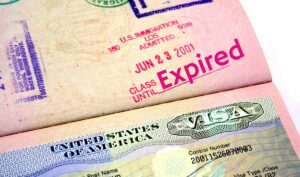
The Trump administration introduced new rules and financial requirements that made it more difficult for many to immigrate to the United States. These tighter restrictions affected many intending immigrants’ decisions to obtain health insurance. But these policies have been reversed. Health insurance for green card applicants is a positive factor. What's more, receiving government financial assistance for healthcare is not a negative factor when applying for permanent residence in the United States. Healthcare coverage can actually help certain applicants seeking a green card.
Understanding Public Charge and Why It Matters
There is long-standing immigration law to support a public charge rule that excludes certain intending immigrants who are “likely at any time to become primarily dependent on the government for subsistence.”
Immigration officials must consider, at a minimum, an individual’s age, health, family status, assets, resources, and financial status, and education and skills when making a public charge inadmissibility determination. Health, more specifically medical expenses, may affect a person's ability to support themselves. The public charge rule's objective is to help ensure an intending immigrant's household can afford these expenses without relying on the government.
RECOMMENDED: Public Charge Rule Explained
Trump Era Changes Reversed
In 2019 the Trump administration issued new regulations that broadened the scope of programs that the federal government would consider in public charge determinations. Under Trump era public charge guidelines, previously excluded health, nutrition, and housing programs, could be used to find an immigrant inadmissible. It made it more difficult to qualify for a green card, but it also scared many from seeking health insurance for green card applicants.
The Biden administration reversed these regulations. U.S. Citizenship and Immigration Services (USCIS) does not consider health, food, and house services as part of the public charge determination. Therefore, these government benefits and services are generally safe to use.
DOS Form DS-5540 Public Charge Questionnaire
Previously, individuals applying for a green card through consular processing may have been required to submit Public Charge Questionnaire (Form DS-5540). It requested information about your health, financial status, and other factors so that consular officers could determine the likelihood that you may become a public charge. Due to the reversal of Trump era policies, you do not need to submit this form.
USCIS Form I-944 Declaration of Self-Sufficiency
Likewise, individuals applying for a green card through adjustment of status may have been previously required to submit a Declaration of Self-Sufficiency (Form I-944). This form also requested information about your health, financial status, and other factors so that USCIS officers could determine the likelihood that you may become a public charge. Due to the reversal of Trump era policies, you also do not need to submit this form. USCIS completely discontinued used of Form I-944.
Health Insurance for Green Card Applicants is No Longer a Negative Factor
In general, applying for health insurance coverage through the Affordable Care Act (Obamacare) and receiving financial assistance for an ACA health plan or receiving low- or no-cost coverage, will not make an individual a “public charge."
When evaluating public charge, immigration officers will only consider public cash benefits and long-term institutionalized care. Therefore, almost all healthcare and nutrition benefits programs are safe to use. In fact, all of the following are examples of public benefits programs which are safe to use:
- Health insurance through the Affordable Care Act, also known as “the marketplace” or Covered CA in California (even if paid with tax credits and subsidies)
- All Medicaid (Medi-Cal in California), including emergency and pregnancy-related services for adults and children (except Medicaid/Medi-Cal used to pay for long-term institutionalized care like a nursing home)
- In-Home Support Services (IHSS)
- Children’s Health Insurance Program (CHIP)
- Flu vaccine and other immunizations
- WIC (Supplemental Nutrition Program for Woman, Infants and Children)
- Food assistance programs like food stamps, EBT, SNAP (CalFresh in California)
- Medical treatment through the Veteran’s Health Administration (including TRICARE)
- Government pension benefits and healthcare
- Medicare (including low-income subsidy)
- Medicaid services or benefits provided in connection with the Individuals with Disabilities Education Act (IDEA)
- Crisis counseling/intervention
Again, using the benefits programs above will not trigger public charge. Immigrants and their families should not be worried about using them.
Making Health Insurance a Positive Factor
Health insurance is not a requirement when seeking permanent resident status. However, health insurance for green card applicants is always a positive factor in the totality of the circumstances. For applicants with higher anticipated medical expenses, health coverage may be helpful removing the public charge grounds of inadmissibility. In other words, if you have known medical issues that will incur expenses, health insurance for green card applicants is very important. Likewise, older applicants who are more likely to seek medical attention should be able to address how they will pay these future expenses.
There are options for obtaining short-term health insurance during this time. If it isn’t possible to get coverage from an employer or family member’s employer immediately, get a quote for plans from another insurance provider like VisitorsCoverage.
Even for individuals with a good household income, surprise medical expenses can be extremely costly. Health insurance demonstrates that you’ll be able to handle these costs if necessary. VisitorsCoverage offers are variety of short-term plans to help you cover these potential costs.
If you’ve obtained health insurance, take evidence of your coverage to your green card interview. You likely will not need it. However, if questioned about how you anticipating paying future medical expenses, you can provide the following information:
- For each health coverage policy, a copy of each policy page showing:
- The terms and type of coverage and persons covered; and
- Annual amount of deductible or annual premium of the health insurance including documentation of the amount of deductible or premium; and
- Letter on the company letterhead or other evidence from the health insurance company stating the non-citizen is currently enrolled in health insurance and providing the terms and type of coverage; or
- The most recent Form 1095-B, Health Coverage; Form 1095-C, Employer-Provided Health Insurance Offer and Coverage (if available) with evidence of renewal of coverage for the current year.
Generally, a health insurance card is insufficient proof without evidence of the effective date and expiration date.
Affiliate Disclosure: We partner with certain advertisers who serve the immigrant community to bring you information about their services. This post contains information and links from an affiliate advertiser.
About CitizenPath
CitizenPath provides simple, affordable, step-by-step guidance through USCIS immigration applications. Individuals, attorneys and non-profits use the service on desktop or mobile device to prepare immigration forms accurately, avoiding costly delays. CitizenPath allows users to try the service for free and provides a 100% money-back guarantee that USCIS will approve the application or petition. We provide support for the Adjustment of Status Application (Form I-485), Affidavit of Support (Form I-864), and several other immigration services.
Note to Reader: This post was originally published on June 26, 2020, and has been modified with improvements.
Want more immigration tips and how-to information for your family?
Sign up for CitizenPath’s FREE immigration newsletter and
SAVE 10%
on our immigration services



